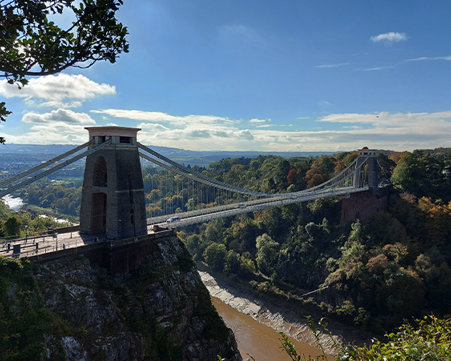
There was disappointment for the construction and transport sectors as Rachel Reeves announced plans to cull a number of key projects in her first address to parliament earlier this week.
Blaming a £20bn “black hole” left by the previous government, the new Chancellor confirmed a number of cuts to capital spending that she has deemed “unaffordable”. Major projects including the £1.7bn A303 Stonehenge Tunnel project will now not move forward and plans for the £320 million A27 Arundel bypass have also been cancelled.
Other casualties following the Chancellor’s first audit of the government’s finances include Boris Johnson’s New Hospital Programme and cancellation of the ‘Restoring Your Railways’ programme, designed to bring disused railways back into service.
The Stonehenge project has faced numerous challenges along the way from campaigners opposed to the scheme which proposed a new road and tunnel under the UNESCO World Heritage Site. A development consent order was granted in 2020 but campaigners successfully launched a challenge at the High Court with the decision later overturned and deemed unlawful. It had been hoped that a final legal hurdle would be overcome and construction would commence later this year. However with over £160m spent to date, the project has now been shelved.
There was widespread disappointment and concern from business groups and economists in relation to the announcement of these cuts. Chief Executive of the CBI Rain Newton-Smith expressed his concern that for the government to deliver on their growth mission, they needed to commit to a continued focus on infrastructure investment.
The new government has pledged to make the UK’s economy the fastest growing in the G7 but in cutting investment in infrastructure projects, it will become harder to achieve this goal with growth dependent on investment.
There was also widespread disappointment over the decision to halt the “Restore Our Railways” project which has already successfully delivered the renewed Dartmoor and Northumberland lines as well as new stations including Marsh Barton in Devon and White Rose on the Huddersfield line. This project in particular helped benefit areas of the country that are often overlooked in favour of more prominent projects around London and the South East.
Defending her cuts, Rachel Reeves accused the previous government of not publicly declaring £35bn of budgetary pressures including a £1.6bn overspend at the Department for Transport related to hand outs to private rail companies to compensate for losses during the pandemic.
Whilst accepting the challenges of budgetary constraints, there has to be a long-term view for infrastructure rather than short-term fixes. Only long-term investment in our nation’s infrastructure development can deliver long-term benefits for our economy and our communities.
Share this article

As 2024 comes to a close, we at Hi West would like to take a moment to express our heartfelt gratitude to everyone who has been part of our journey this year.

Last weekend saw Darragh, the fourth named storm of the 2024-25 season, unleash high winds and heavy rainfall across the British Isles, once again straining the UK’s flood defences and transport infrastructure to their limits.

According to figures released recently, the nuclear sector in Bristol has reached a new milestone, now supporting 3,500 jobs as the city strengthens its role as a center for engineering, manufacturing, and research.